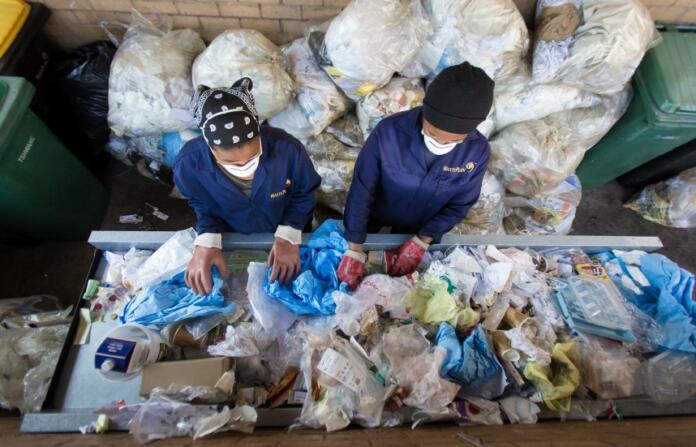ENVIRONMENTAL, social, and corporate governance (ESG) is an approach to evaluating the extent to which a corporation works on behalf of social goals that go beyond the role of a corporation to maximize profits on behalf of the corporation’s shareholders – Wikipedia.
As nations and cities urbanize, develop economically, and grow in terms of population, the World Bank estimates that waste generation will increase from 2.01 billion tons in 2016 to 3.40 billion tons in 2050. At least 33% of this waste is mismanaged globally today through open dumping or burning; – World Bank Report: What a Waste 2.0: A Global Snapshot of Solid Waste Management to 2050.
South Africa is part and parcel of these statistics.
In 2017 the Government estimated that 83% of total waste ended up in the landfill with only 13% being recycled. Regulations have been tightened and include EPR (Extended Producer Responsibility) and tighter control at landfill sites through increased tipping charges to dissuade dumping and encourage recycling by both companies and residents to adopt a more responsible attitude towards society and the environment.
The country is running out of landfill space, municipalities aren’t investing in expanding these facilities, yet the amount of waste is steadily increasing, and the crunch point is on the horizon.
“It’s about changing perceptions and cultures, and looking at the big picture and what’s best for humankind and our environment” says Bertie Lourens, CEO of WastePlan, a national ISO certified waste management company that specialise in developing and implementing strategies to minimise the waste stream and promote recycling.
“It’s not just creating the feel good factor, we run a business and that business must be profitable and the realisation is summed up in our motto “If we cannot save you money, we don’t get involved”.
The company’s services extend to on-site waste management, recycling, zero waste to landfill and implementing waste management strategies, and while being involved in residential collection services, they concentrate their expertise and activities on industrial & commercial recycling.
“Due to legislative and policy developments in protecting our environment, waste management has become an important component of managing any business. Failure to manage waste responsibly will have increasingly negative financial, social and reputational implications, not least in escalating landfill fees or fines. WastePlan manages all general, organic, hazardous and recyclable waste and reports on the entire waste stream in a manner that complies with HACCP and ISO 14001 standards” Lourens explains.
Case study: 75% waste diversion achieved in three months
What can be achieved is best summed up by this case study of a waste reduction and recycling programme implemented on behalf of Liberty Two Degrees (L2D) at the shopping malls they own.
The key numbers are that prior to the WastePlan strategy being implemented, L2D’s shopping malls were sending 61% of their waste to landfill and only 39% was being recycled.
In just a short space of three months of WastePlan’s management operations, recyclables had climbed to 75% and Lourens estimates that by June this year the recycling performance will be above 90%.
“A number of measures were applied, not least an education and training programme for the food tenants to explain how proper waste management can bring opportunities to minimise waste costs and increase value.
“A raft of measures was adopted around waste management which includes; the separation of wet and dry waste and, recyclables and non- recyclables, the improvement of signage, regular refuse collection and exchange, a waste data management and weighing initiative controlled with an easy bar code system allowing the documentation accurate measurement of the waste stream, amongst others. The Landlord also developed a differential billing model to drive behaviour and make the process of waste cost allocations to tenants much more accurate based on waste generation by type and the data more transparent. Rebates obtained are passed back on a contribution basis to tenants to award them for proper separation at source activities.
“The target is to achieve a 100% recycle rate although some complex materials cannot be recycled economically, as they are too small or the composition of the material requires sophisticated processes for recovery, there is however very little waste that does not have a recycling solution.”
Lourens concludes: “We view our involvement as a partnership with our clients – which includes some of the country’s biggest corporates – where our performance is linked to the client’s goals, and financial incentives and bonuses form part of the package. We believe that our model benefits everyone and the environment – If we cannot save you money, we don’t get involved!” he reiterates.
